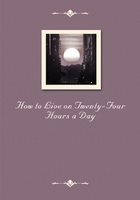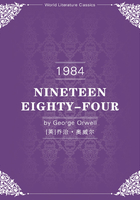'No, I do not,' replied his brother, 'I mean what I say, the boy who got nearest it, no matter whether he came first or last; the fun was to see them try to keep in a straight path, with their eyes tied up, whilst they wander quite in the wrong, and not to try who could run fastest. Well! when they, were all blinded, and twisted round three or four times before they were suffered to set off, they directed their steps the way they thought would directly conduct them to the goal; and some of them had almost reached it, when Sharply (the boy I mentioned) who had placed a shilling upon the stick, for they drew lots who should do that, and he who furnished the money was to stand by it, to observe who won it by coming nearest; well, Sharply, I say, just as they came close to it, moved away softly to another place, above three yards distant from any of them (for I should have told you, that if none of them got within three yards, the shilling was to remain his, and they were each to give him a penny.) So then he untied their eyes, and insisted upon it they had all of them lost. But two or three of us happened to be by, and so we said he had cheated them, and ought not to keep the money, as it had fairly been won by Smyth.
But he would not give it up, so it made a quarrel between him and Smyth, and at last they fought, and Mr. Chiron confined them both in the school all the rest of the afternoon, and when he heard what the quarrel was about, he took the shilling from Sharply, and called him a mean-spirited cheat; but he would not let Smyth have it, because he said he deserved to lose it for fighting about such a trifle, and so it was put into the forfeit-money.'
'But pray do not you think Sharply behaved extremely wrong?'
'Shamefully so, indeed,' said the gentleman. 'I never could have any opinion of a boy 'who could act so dishonourably,' said the lady, 'let his cleverness be what it would.' 'Pray, Frank, tell me some more,' said the little boy. 'More!' replied Frank, 'Icould tell you an hundred such kind of things. One time, as Peter Light was walking up the yard, with some damsons in his hat, Sharply ran by, and as he passed, knocked his hat out of his hand, for the sake of scrambling for as many as he could get himself.
And sometimes, after the pie-woman has been there, he gets such heaps of tarts you cannot think, by his different tricks: perhaps he will buy a currant tart himself; then he would go about, calling out, "Who'll change a cheesecake for a currant tart?" and now-and-then he will add, "and half a bun into the bargain!" Then two or three of the boys call out, "I will, I will!" and when they go to hold out their cheesecakes to him, he snatches them out of their hands before they are aware, and runs away in an instant;and whilst they stand for a moment in astonishment, he gets so much ahead of them that he eats them up before they can again overtake him. At other times, when he sees a boy beginning to eat his cake, he will come and talk carelessly to him for a few moments, and then all of a sudden call out, "Look! look! look!-there!" pointing his finger as if to show him something wonderful; and when the other, without suspecting any mischief, turns his head to see what has so surprised him, away he snatches the cake, and runs off with it, cramming it into his mouth in a moment.
'And when he plays at Handy-dandy, Jack-a-dandy, which will you have, upper hand or lower? if you happen to guess right, he slips whatever you are playing with into his other hand; and that you know is not playing fair; and so many of the boys tell him; but he does not mind any of us. And as he is clever at his learning, and always does his exercise quite right, Mr. Chiron (who indeed does not know of his tricks) is very fond of him, and is for ever saying what a clever fellow he is, and proposing him as an example to the rest of the boys; and I do believe many of them imitate his deceitful, cheating tricks, only for the sake of being thought like him.'
'Aye! it is a sad thing,' interrupted the gentleman, 'that people who are blessed with sense and abilities to behave well, should so misuse them as to set a bad, instead of a good example to others, and by that means draw many into sin, who otherwise, perhaps, might never have acted wrong. Was this Sharply, you have been speaking of, a dunce and blockhead at his book, he would never gain the commendations that Mr. Chiron now bestows upon him; and, consequently, no boy would wish to be thought like him; his bad example, therefore, would not be of half the importance it now is.
'Only think, then, my dear children, how extremely wicked it is, for those who are blessed with understandings capable of acting as they should do, and making people admire them, at the same time to be guilty of such real and great sin. For, however children at play may like to trick and deceive each other, and call it only play or fun, still, let me tell you, they are much mistaken if they flatter themselves there is no harm in it. It is a very wrong way of behaviour; it is mean, it is dishonorable, and it is wicked; and the boy or girl who would ever permit themselves to act in so unjustifiable a manner, however they may excel in their learning, or exterior accomplishments, can never be deserving of esteem, confidence, or regard. What esteem or respect could Iever entertain of a person's sense or learning, who made no better use of it than to practise wickedness with more dexterity and grace than he otherwise would be enabled to do? Or, what confidence could I ever place in the person who, I knew, only wanted a convenient opportunity to defraud, trick, and deceive me?
Or, what regard and love could I possibly entertain for such a one, who, unless I kept a constant watch over, as I must over a wild beast, would, like a wild beast, be sure to do me some injury? Would it be possible, I say, to love such a character, whatever shining abilities or depth of learning he might possess?
Ask your own hearts, my dears, whether you think you could?'















